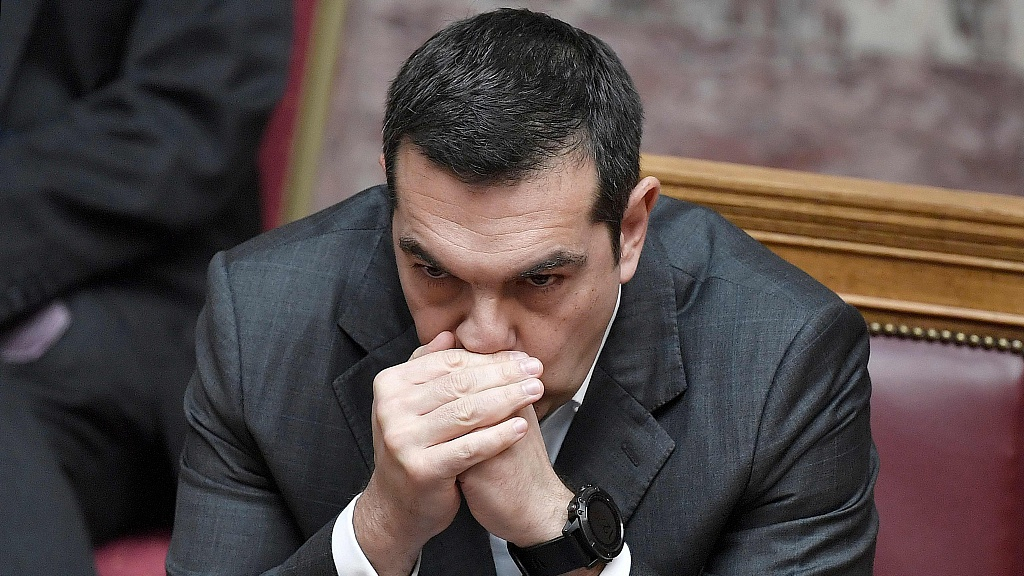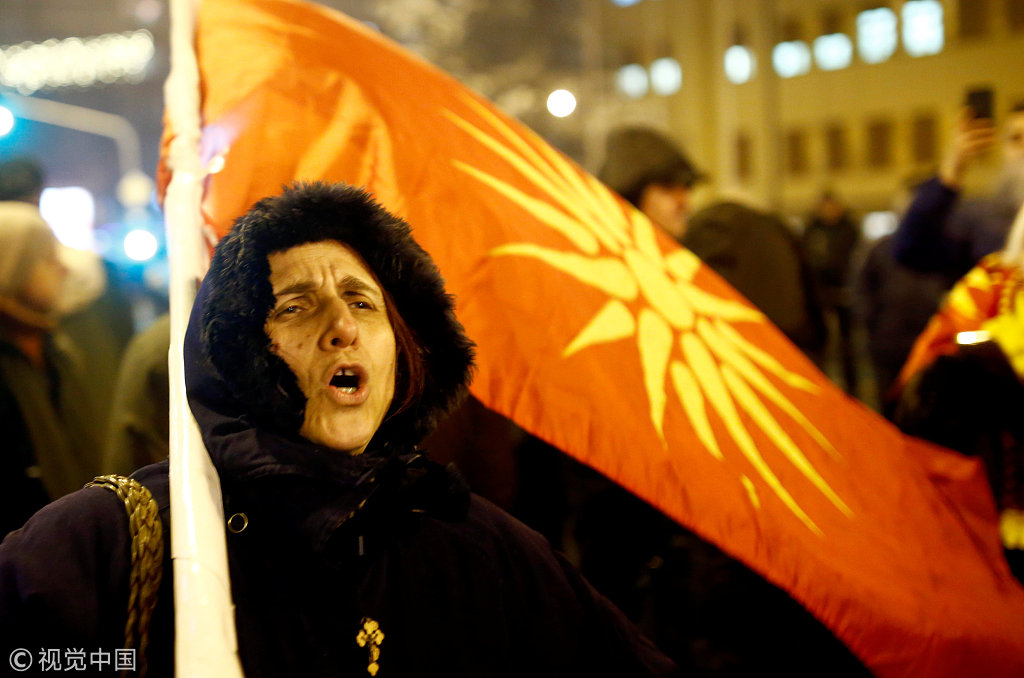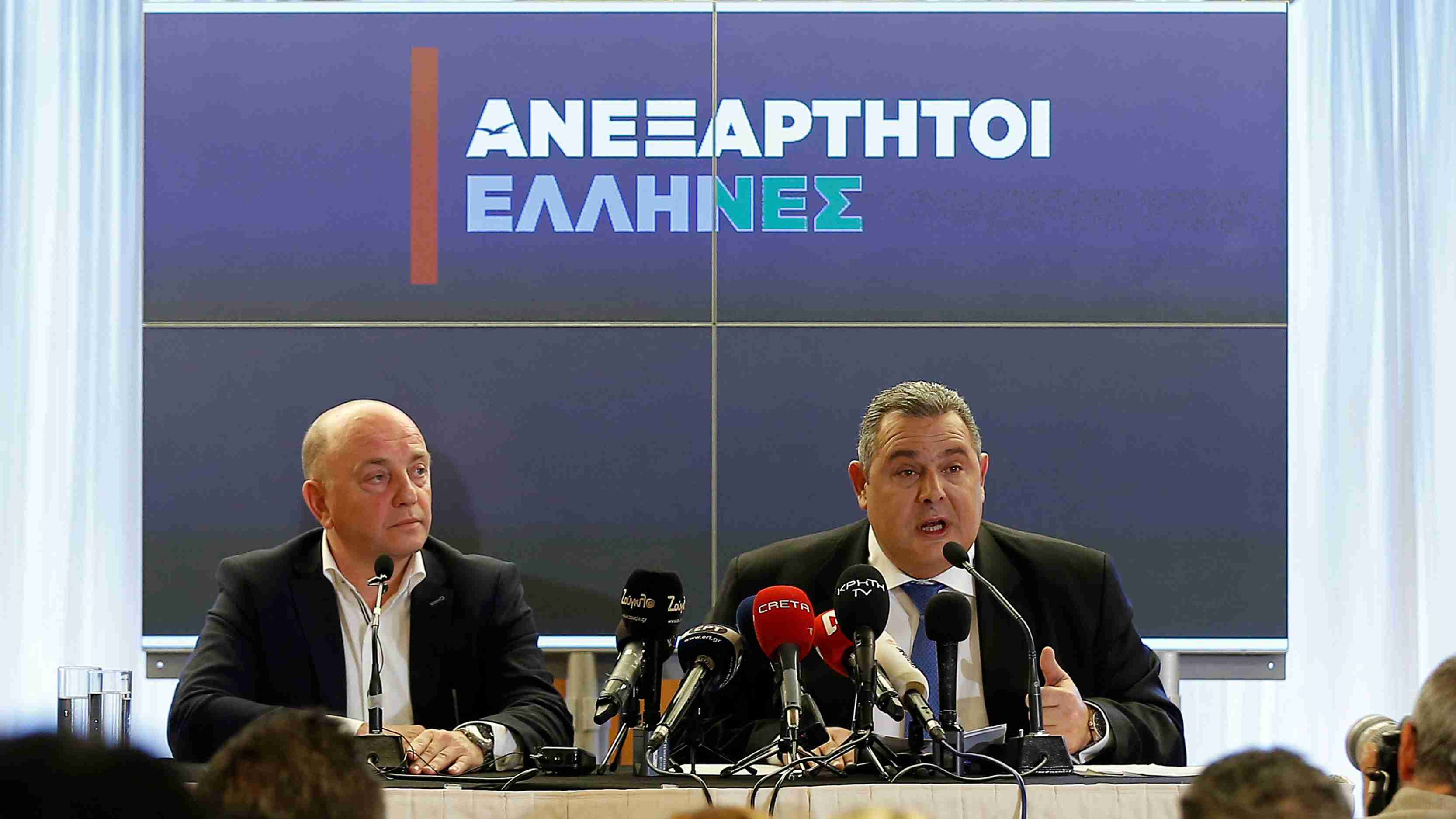
Politics
21:16, 17-Jan-2019
Behind Macedonia name deal: The bizarre alliance between Tsipras and Kammenos
Updated
22:06, 17-Jan-2019
By Filio Kontrafouri
02:21

From the onset, it was an odd alliance that many predicted was doomed to fail sooner or later. The leftist Syriza party, led by current Prime Minister Alexis Tsipras joined forces with the right-wing populist Anel party headed by former Defense Minister Panos Kammenos in 2015 after Syriza failed to obtain an overall majority to form a government. Both political parties loathed the austerity imposed on Greece by its international lenders in exchange for billions in bailout funds. But that was pretty much the only thing they agreed on.
Kammenos refused to support Tsipras's leftist agenda several times. For instance, his Anel party voted against a bill that grants same-sex couples the right to a civil union. Yet, there has been one, deeply-rooted difference that would ultimately shake this unorthodox union to its core.
It started becoming apparent in 2018, when Athens and Skopje began a new round of negotiations on the Macedonia name issue – an issue that's dragged on for three decades and has prevented Macedonia, Greece's northern neighbor, from joining international organizations, such as NATO and the European Union.
Greece vetoed Macedonia's entry to both organizations because of the country shares its name with a northern Greek region, also "Macedonia." Greece argues that the use of the name by its neighbor implies irredentist claims.
The Macedonia name issue is a red flag for many Greeks, including Anel and its leader. Greek opponents of the use of the name “Macedonia” say the name can only refer to the Greek region, once home to the ancient kingdom of Macedonia and birthplace of Alexander the Great. They also accuse their neighbor of appropriating Greek identity and history.
Stressing his party's foundation proclamation, Panos Kammenos said at the time of the negotiations: “I and the Anel will never vote for a name that contains the term Macedonia."

Supporters of the movement boycotting the deal with neighboring Greece to change the country's name to the Republic of North Macedonia protest in front of the parliament building during parliamentary debates on constitutional amendments related to the name change, in Skopje, Macedonia January 11, 2019. /VCG Photo
Supporters of the movement boycotting the deal with neighboring Greece to change the country's name to the Republic of North Macedonia protest in front of the parliament building during parliamentary debates on constitutional amendments related to the name change, in Skopje, Macedonia January 11, 2019. /VCG Photo
Still, Prime Minister Tsipras remained determined to end the long-standing name dispute and in June 2018, Athens and Skopje finally reached a compromise under which Macedonia would change its name to “Republic of North Macedonia.” That's when Alexis Tsipras survived another no-confidence vote over the Macedonia deal, mounted by the opposition. Yet at that time his nationalist coalition partner supported him.
Parliaments in both countries would have to ratify the deal in order to come into effect. The former Yugoslav Republic ratified the pact last week. Less than 48 hours later though, with the resolution of the row appearing closer than ever, Greece was plunged into political turmoil.
Panos Kammenos resigned from his role as defense minister and withdrew his party's support from Alexis Tsipras's government over the Macedonia name deal. “The issue of Macedonia, an issue for which thousands died, does not allow me not to sacrifice the minister's chair,” Kammenos announced after holding talks with Tsipras on Sunday.

Panos Kammenos (R), outgoing defense minister and leader of minor coalition party Independent Greeks, speaks during a news conference after the announcement of his resignation, in Athens, Greece, January 13, 2019. /Reuters Photo
Panos Kammenos (R), outgoing defense minister and leader of minor coalition party Independent Greeks, speaks during a news conference after the announcement of his resignation, in Athens, Greece, January 13, 2019. /Reuters Photo
Tsipras responded by immediately seeking a confidence vote, which he narrowly won Wednesday night (with 151 votes in the 300-seat parliament) with the help of a handful Anel defectors and independents.
The vote now paves the way for the Greek parliament to approve the accord, which Tsipras's government will be bringing for ratification next week and hopes to have it approved with 151 votes – a tough target since the opposition rejects it. Moreover, the majority of Greeks oppose the agreement, with hundreds of thousands taking to the streets last year to protest it.
Another rally is planned in downtown Athens on Sunday, just days before the deal heads to parliament. Most analysts say that Tsipras will eventually be able to find the support he needs to pass the accord though at the moment, the fate of the Macedonia name deal remains as uncertain and fluid as Greece's political landscape.
(Cover: Greek Prime Minister Alexis Tsipras attends the Greek Parliament in Athens the start of a two-day debate on a confidence vote he called after his coalition collapsed in a row over a planned name change deal with Macedonia, January 15, 2019. /VCG Photo)

SITEMAP
Copyright © 2018 CGTN. Beijing ICP prepared NO.16065310-3
Copyright © 2018 CGTN. Beijing ICP prepared NO.16065310-3